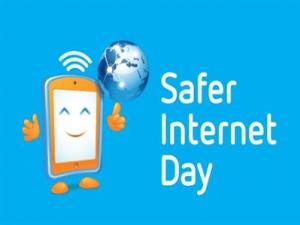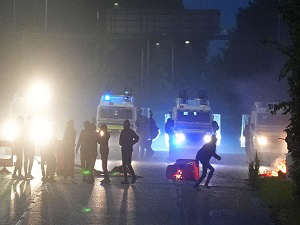
By Q Radio News
Online child sexual abuse crimes have increased by more than 80% in the past three years, according to the PSNI.
The data also shows that in the five years from 2016/2017 they have almost doubled - from 178 to 308.
Police said the team that investigates the most serious of these crimes is busier than it has ever been since its inception in 2010.
The once eight-strong police unit has now doubled in size.
Online child sexual abuse cases increased by 80% in three years - PSNI.https://t.co/5O8WkBndN7
— Q Radio News (@qnewsdesk) February 8, 2022
Offences include sexual assault, rape, and sexual communication with a child where any element of the offence was committed online.
The PSNI has released a video on Internet Safety Day to all schools, highlighting potential dangers online.
The video encourages parents to be more aware of the online activities of their child and in particular, who they are speaking to and the types of games they are playing.
Since January 2021, the team has been involved in 125 searches, resulting in 52 arrests for offences, including possession, making and distributing indecent images and sexual communication with a child.
The number of searches and arrests increased by over 23% and 18% respectively compared with the previous 12 months.
Detective Chief Inspector Kerry Brennan said:
“We know that children are being groomed online in Northern Ireland.
“Children now have access to numerous digital devices at home, meaning they are at greater risk to be targeted by online predators.
“We want to help parents understand the dangers online and encourage them to have the same safeguarding conversations that they would if their children were leaving the house to go outside to play.
“Just because they are in their room on their devices, doesn’t mean they are safe.
"Your child could be talking to anyone online.
"Check in regularly, find out who they are talking to and educate yourself and your child about the importance of online safety.”
Officers are working with local schools, the Department of Education and the Education Authority and are appealing to any parents concerned that children may be being groomed online or at risk, to contact police on 101, or in an emergency always dial 999.
For more information on how to spot the signs of online grooming you can visit the NSPCC website here: https://www.nspcc.org.uk/what-is-child-abuse/types-of-abuse/grooming/



 American woman faces court charged over fatal crash outside N Ireland hotel
American woman faces court charged over fatal crash outside N Ireland hotel
 Senior judge appointed to chair Finucane Inquiry
Senior judge appointed to chair Finucane Inquiry
 Police come under attack for fourth night in Northern Ireland
Police come under attack for fourth night in Northern Ireland
 Three teenagers charged following violence in Ballymena
Three teenagers charged following violence in Ballymena
 PSNI request support from UK colleagues to deal with Ballymena violence
PSNI request support from UK colleagues to deal with Ballymena violence